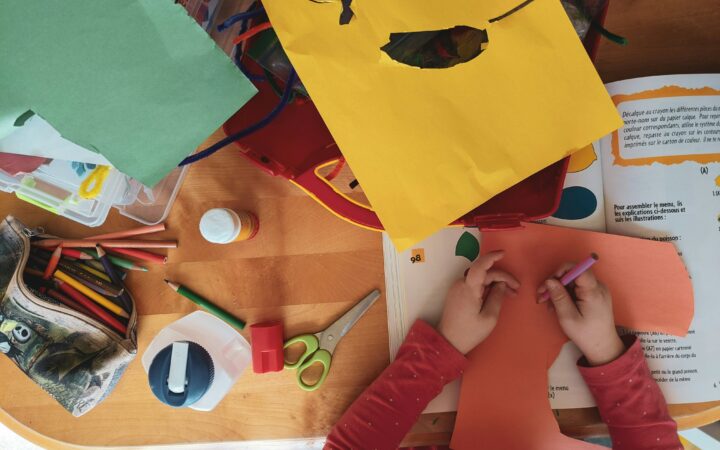Kids are only young once, and so you might be of the opinion that it’s important to let them enjoy every minute and not have to worry about the pressures of adult life. However, there are lots of things you can be doing right now that teach them responsibility that will come in useful later. You might want to wrap your child up in cotton wool (we all do!) but they can still have an incredible, stress free childhood while picking up vital skills that they’ll need later on. In fact, starting early is best, as it helps to establish positive routines and attitudes rather than them getting older and realising they need to learn how to do everything! So many young people leave home for college or adult life without being able to do a thing, here are some skills you can teach to ensure your child doesn’t end up this way!

Keeping their room tidy
Kids and clean rooms are an ongoing battle, its something you’re going to give many lectures about over the years! But start with small things, make it your child’s responsibility to make their bed each morning until it’s a habit. Get them to pick up toys and put them in the right place each evening before bed. Have them put their dirty laundry into the hamper. These are all jobs that children can realistically do, and if you keep at it with reminding them it will hopefully stick. If they know that they’re the one who will be cleaning up their mess, it can make them become more mindful of creating a lot of mess in the first place and teaches responsibility. Of course, you’re still going to have to go back in and clean and organise properly, but having them doing basic jobs not only makes your life a little easier but it helps to establish good routines for them too. This kind of task can help to develop a sense of pride in their surroundings and an appreciation for organisation, rather than settling with chaos and mess.
Laying the table
Eating together as a family has been shown time and time again to be beneficial by researchers. Families that eat together tend to be closer, which can mean their children are more stable and less likely to give into peer pressure. This is reflected in the fact that there are lower incidences of teen pregnancy, drug and alcohol use in families that eat together multiple times a week. Cooking in the evenings is a good habit for you and your partner to get into, and you can get children involved by having them set the table and perhaps clear plates and load them into the dishwasher afterwards. Families that eat together and cook from scratch more tend to be less likely to be obese too, so let your children see you filling up on healthy, homecooked meals.
Simple cooking and baking
Speaking of cooking, teaching your children how to cook is fun and educational, and could really benefit them later down the line. Start small, teach them simple ingredients and where their food comes from. Show them simple cooking techniques, and work together to create healthy, tasty meals. As their knowledge grows you can start to work your way up to more complex dishes. Having an idea of what different foods and recipes are and how to create healthy meals to feed themselves will come in really useful later in life. They might have you around now cooking for them, but one day they’ll need to spread their wings and start doing these things for themselves. Encouraging an interest in food, cooking and nutrition from childhood puts them on the best path for the future. Baking is another fun skill to teach kids, it shows them that precision is important. Unlike cooking which is easily adapted, baking requires following a recipe and weighing out ingredients exactly. It’s another great way to get kids involved in the kitchen, and you can always choose healthier bakes like oat bars and fruit muffins if you’re concerned about too much sugar.
Caring for pets
Having a pet really completes a family, they bring so much love, joy and laughter to a household. But they take some looking after, and so teaching your children how to care for an animal is a great way to teach responsibility from a young age. Putting food and water into their bowl each day and letting them out into the garden each morning before school could become part of your child’s routine. If your child is a little older, they could be responsible for taking them on a walk and choosing pet food & supplies that are needed. If it’s a smaller animal like a rabbit or rodent, clearing out their cage or hutch regularly is something they should be responsible for if it was them who begged you to get the animal. It helps them to realise that taking care of a pet comes with a lot of hard work, it cant just be forgotten about because they don’t want to do it.
Managing money
Kids have very little concept of money, its why they’re forever asking for expensive things as if money can be pulled out of thin air! Teaching them how it works will not only benefit you, but them as well. Once way you can do this is to have them earn their pocket money, that way they’ll see that cash isn’t just given but is hard earned. You could then teach them the benefits of spending a little to enjoy now, and saving a little to put towards something else later. If they want to blow the lot and end up regretting it thats fine too, it’s all lessons to be learned. Another fun option is to give kids a budget for a day out, and see if they’re able to manage the money. If they spend the lot at the first place then you won’t have anything left for later, again it’s an important lesson to be learned. Simple cleaning tasks around the home and maintaining good behaviour are things you could reward with money, let them realise that it doesn’t just come for nothing. Then when they ask you for money and expensive things, you can explain how your money is hard earned too and they’ll have a much better understanding of things.
Sharing and consideration
In life, it’s the people along the way that all make it worthwhile. Life is about making good connections with others, and to do that, we need to learn to be kind, considerate and compassionate people which starts in childhood. As babies and young children we’re inherently ‘selfish’- it’s all about survival and we lack the understanding needed to see things from anyone else’s point of view. But as time goes on, we grow in our capacity to think and feel from others perspective, this is something we need to nurture as parents. Show your children kindness and understanding and they will begin to show it to others. Teach them how to share, how to take turns and be respectful. These aren’t skills we’re born with as humans, they’re things we have to learn. Working on them from when kids are young will help them to make the friendships and connections that they need with others.
What sort of skills do you think are most important to teach our kids ready for adult life, later down the line?
Collaborative Post











Leave a Reply